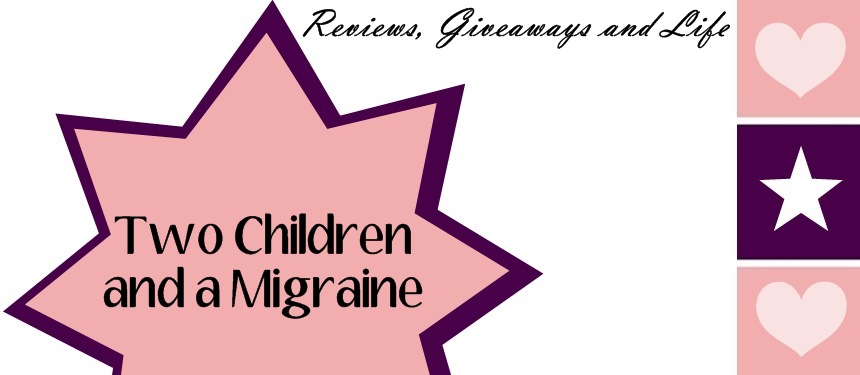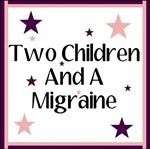Today Two Children and a Migraine is lucky enough to have another great author guest post. I strongly believe that there are always lessons to be learned through everything that we go through. Check out below with the lessons that Tara Lee Reed has learnt. Be sure to check back later for the review of Coulda, Woulda, Shoulda!
10 Things I've Learned From Writing
First, I want to thank to Jayda for having me as a guest at Two Kids and a Migraine to talk about my debut novel!
In Coulda, Woulda, Shoulda,
you become Elle Masters, frustrated and ready to give up on dating
following another break up that didn’t break your heart. When your
friends drag you out on the town, you meet tall, dark and hummuna
hummuna Nick Wright. And this is no rebound guy, he’s definitely, maybe,
The One. Immediately, you’ll find yourself balancing your heart and
your head as you navigate your way through hundreds of dating dilemmas
and passionate predicaments. With 60 endings, you’ll always have another
second chance with Mr. Wright.
Alright. Settle in. Presenting...The Top 10 Things I’ve Learned Since I Started Writing
1. There is Absolutely Such a Thing As Too Much Research.
While Coulda, Woulda, Shoulda is
indeed a work of fiction with fully developed characters, the idea was
inspired by the sheer volume of dating advice books available. That
meant reading a lot of them to compile a large and varied
selection of common conundrums and dilemmas while hopefully representing
as wide an audience as possible.
After
months of research, I finally began plotting out the first draft, but
when I decided to expand it a couple of years later, that meant more
research. Eventually my partner had to say, “Stop! Write.” It probably
didn’t help that our apartment was starting to look like a scene from a
war room on Criminal Minds thanks to my scattered research cards and boards.
2. Writing is Hard.
I mean, that goes without saying. If it were easy to write a book, everyone would do it.
It
was just harder than I expected. Harder than arranging all of my
“Conflict Cards” into intertwining story streams that made sense no
matter how you arrived at them.
This
was partly due to the fact I’d created the entirety of the plot before
I’d started thinking even abstractly about characters. So I suddenly had
these pages, blank with the exception of the relationship dilemma at
hand, and I had to build characters, environments and context from there.
I’m
sure the rest was old fashioned insecurity. I look back at the first
draft of the manuscript and am amazed any agent looked past the first
page, let alone seriously considered representing it. Years later, the
final product might as well be a different book.
3. You Can’t Please Everyone.
Because Coulda, Woulda, Shoulda
combines so many genres, and centres around dating, people often
mis-classify it. For example, because of the source content, people want
to call it a dating book. So if you’re a married mom or in a committed
relationship, you might think the book wasn’t relevant to you, but in
reality, I’d wager you’ll have more fun than a single gal. It’s also not a how-to guide. There are no right or wrong answers.
Others want to call it a romance novel, sometimes chicklit. And while it most certainly has those vibes, what with all the feels and witty humor, there’s just one thing… Those genres generally guarantee a Happily Ever After. It’s why we read them, right? We know all will be well in the end, so we can enjoy the angst and drama that gets us there. And there are HEAs in Coulda, Woulda, Shoulda, but with 60 endings taking us from Meet Cute all the way up to (maybe) I Do, they can’t all go the distance, and they can’t all be pretty. In fact, some of them are downright frustrating, but that’s the whole art imitating life thing.
Others want to call it a romance novel, sometimes chicklit. And while it most certainly has those vibes, what with all the feels and witty humor, there’s just one thing… Those genres generally guarantee a Happily Ever After. It’s why we read them, right? We know all will be well in the end, so we can enjoy the angst and drama that gets us there. And there are HEAs in Coulda, Woulda, Shoulda, but with 60 endings taking us from Meet Cute all the way up to (maybe) I Do, they can’t all go the distance, and they can’t all be pretty. In fact, some of them are downright frustrating, but that’s the whole art imitating life thing.
4. Always Have a Back Up.
Almost
nothing about this process has been what I expected, or at least,
things came about in strange ways and at odd times. I also took a few
risks that could (and some did) setback my production schedule.
From
vendors who just didn’t deliver (and for the record, you get what you
pay for), to fundraising attempts, and finally publisher submissions,
there were so many set backs. Could have published in 2013, kind of
setbacks.
Funnily,
it was the acquisitions process that did me in. I was ready to go with
my indie plans - all but copy-edited, interior and exterior designers
vetted and locked down, marketing planned, media opportunities set up,
and people waiting for advance review copies. (It’s worth noting, my
ARCs couldn’t be word docs, they had to be the final retail file because
of the intricate, interactive format) But when my agent convinced me to
give traditional publishing another try, I obviously went for it. I
knew it was unlikely I’d be getting an offer let alone taking a deal,
but who doesn’t want to go for that ride - especially when she’s
resigned herself to it never happening?
But
when I did opt to remain indie, my vendors were gone, my Valentine’s
media ops had passed, and there were no ARCs. I was months behind.
(Still am.) I managed to assemble a new team, but the process took
forever. And an interactive ebook is tricky, but a non-linear ebook is
much trickier. There were so many technical hiccups before achieving the
smooth reading experience we did. There were many vendor issues. The
print book was too big. And it turned out great, all of it did, but I’ve learned my lesson. Even back ups need back ups.
5. Plan, Plan and Plan Some More.
I
wish I’d spent more time thinking about the complexity of the long term
mechanics of the ebook before I began writing. It’s not linear, so
you’ll be jumping from page 5 to page 100 to page 283. That seemed
simply-complicated enough, so I just sort of went for it. About a third
of the way in, I was ready to throw my computer out a window because of
the constant scrolling up and down within the ever-expanding document,
always losing my place and just bleeding time.
My brother helped me engineer as system that is close to a Word
version of the ebook, with anchors and bookmarks that take you from one
section to the next with a click. Heaven. But it took forever to
implement. And that was only the first of maybe four times I completely
overhauled the formatting. I’d say research, writing and design took up
equal time.
And
efficient use of resources is especially important to me because of a
chronic illness that keeps me on the bench more often than not, with
zero predictability as to the time or duration I’ll be out of
commission. The economy making my book a publishing risk in 2009 turned
out to be maybe the best thing that could have happened the project, as I
spent the next two years dealing with the fallout of a very dangerous
medication I was prescribed. There was no way I would have been able to
honour a publishing agreement.
I
have much more experience now, as well as fail-safes and more
sophisticated programs; so while my health will always be a wild card, I
should be able to complete future titles in the series in quarter of
the time. I hope.
6. There is No Such Thing As Premature Planning For The Big Picture:
During
those two years, I maximized my downtime by filling notebooks with
various ideas to improve the book, or for eventual marketing and
positioning. When I’d tell people about this, I’d often hear that I
wasting my time or getting ahead of myself, and I started to think they
were right. But it turns out that old adage “Luck is where preparedness
meets opportunity” is pretty darned accurate. Those agents who suggested
self-publishing in 2009 were right about publishing it myself and
leveraging my PR background. I learned everything I could about it and
slowly started building my marketing platform. Last year, my efforts at
creating buzz led me to an agent afterall. And earlier this year I
received and declined single and multi-book offers for the series. I
certainly never expected any of that.
7. Some Stuff Just Works Itself Out.
This
is kind of a continuation of Number 6. I go back and forth on whether I
believe “things happen for a reason,” but I am clear that there are
things that just wouldn’t or couldn’t have happened unless something
else had (or hadn’t). I was really bummed when I first heard the
suggestion of self-publishing. It wasn’t because I’d gone my life
dreaming of traditional publishing, I just wasn’t sure I could do it,
and moreover, like many others at the time, I wasn’t sure if indie books
were a fad.
But
as I read more about it, I saw how my professional skills really did
transition nicely - at the very least, giving me a slight advantage. I
developed a near obsessiveness about pulling out every lick of potential
from Coulda, Woulda, Shoulda, and making sure the end result was near indistinguishable from a traditionally published novel.
It’s
funny, because I’m not a really “proactive” person. I’m not lazy, but I
can procrastinate with the best of them (I just start a little later
than they do). That fear forced me to think of myself as a publisher.
Saddled on my couch with a notebook because I couldn’t be at a computer,
I did all the big picture thinking, toying with the idea of a series,
but unsure if I would want to do another title.
While
it prepared me to launch the book, it also gave me the ability to
rationally weigh publishing offers, as well as the freedom to decline
them, regrettably but without regret. As much as I would have gained
from working with a Big Five house, I wasn’t necessarily sunk without
them. I hadn’t lost anything, rather I’d gained confidence that I could
do it on my own.
8. Ask For Help.
Around the time I had the initial idea for Coulda, Woulda, Shoulda, I was on a productivity book kick, reading a The Success Principles by Jack Canfield (Chicken Soup For The Soul).
I used it as an early outline for getting myself primed to start even
researching the book. There are a lot of great teachings in there, one
of which was the fact you’d be silly not to ask people for help.
I’m awful at
that. Unless you’re paying me, in which case, I have no problem telling
you I don’t understand something rather than mess up and get fired. But
when it comes to self-serving help, I feel like a bother - even though
it doesn’t bother me when someone asks for my expertise. The way things
shook out for me personally and professionally basically wiped out the
luxury of thinking that way. And when I looked around, I realized that
my career in public relations had afforded me the opportunity to work
with some incredible people with varied talents in all areas of consumer
and technology industries. And they were happy to help. Enthused even. I couldn’t have pulled this off without them. It’s why books have acknowledgments, you know.
9. A Series is Where It’s At.
When
I finished the first draft, I said I didn’t think I could write another
choosable path book. When I started the expansion that is now the final
manuscript, I decreed never again! But then a funny thing
happened. Expansion meant more fully developing the characters, both
immediate and peripheral. As part of my marketing plan, we created a
series of original ecards with quips from the book and added them to
character-curated Pinterest boards,
where I pin in each gal’s “voice,” and based on her personality. I used
to hear people say their characters spoke to them and I thought I
understood that, but I didn’t really.
By the time the book was finished, not only did each character also have her own personal playlist on Spotify, but
I enjoyed them so much, I couldn’t wait to write features for them.
That’s when the book officially became a series. And while I was
prepared to do it regardless, it didn’t hurt to realize that it would be
so much easier/faster because the environments, as well as character
backgrounds, voices and dynamics, were already nailed down. Authors like
Kristan Higgins and Jill Shalvis are so smart. They’re able to put out
so many titles a year not just because they’re pros, but because they
focus on entire fictional “communities,” and within them, mini-series
following three female characters, giving each her turn as the star.
So that’s what I’m doing. The next title, Good On Paper, features
Rachel, moving Elle into a supporting role with Valerie. The book is a
romance novel satire, overrunning the series’ least romantic character’s
life with classic studly romance archetypes. The third, As the Plot Thickens,
features Valerie and will be a soap opera satire - love triangles,
illegitimate kids, weekly shootouts - the works! I can’t wait.
10. If You’re Afraid Of It, Start There.
I’ve
come to learn it’s the stuff I worry people won’t like or “get” that
usually winds up being my best work. Whether that sticks...well, that’s
another thing altogether. With Coulda, Woulda, Shoulda, it was the dialogue. It terrified me.
It’s the main reason the original concept had a much lower word count.
And pictures. It was More of a “See Jane Date” type thing.
But
because I’d been forced to put the draft in the drawer for a couple of
years, when I came back to it, it was an overwhelming “Oh, my lord, this needs more depth.” Of
course, getting to know the characters helped with that, but wow. It’s a
different book. And the most common compliment I get is the naturalness
of the dialogue. Go figure.
In
general, I don’t think we give ourselves enough credit. We always say
we can’t do something when we’ve never even tried. And who knows? Were
it not for my fear, I could have been a stellar CIA agent! Well, I’m
from Canada, so CSIS, eh?
11. Listen To the Majority, Not the Minority.
As Vivian says in Pretty Woman,
“it’s easier to believe the bad stuff” people say than the good. I
think that’s true of anything, but particularly when you’re new to
something. I lost at least six months because I’d given too much weight
to the opinion of one person (who wasn’t even representative of my demo)
regarding a particular aspect of the narrative style. Not just because I
was insecure, but because I really respected them. And this was after
I’d gotten nothing but positive reinforcement from pros in my genre.
I
didn’t apply the advice in the end, and I’m glad I didn’t - especially
because I never heard the comment again. My new rule is that I need to
hear something from two objective sources before I worry about it, three
before I do anything about it.
Hey, whad’ya know? I learned eleven things since I started writing!
I hope you’ll snatch up Coulda, Woulda, Shoulda at a reduced price until August 12! And check out www.doorflower.com
for enhanced content, like hysterically hilarious ecards, grown up
versions of your favourite schoolyard games, character-curated Pinterest boards, and even an Unofficial “Official” Soundtrack and character-inspired playlists on Spotify!
Until the sequel,
Tara Lee Reed




























1 comment:
Great post!
Post a Comment